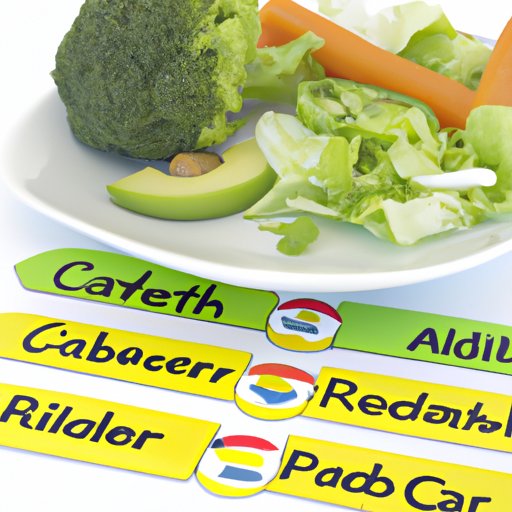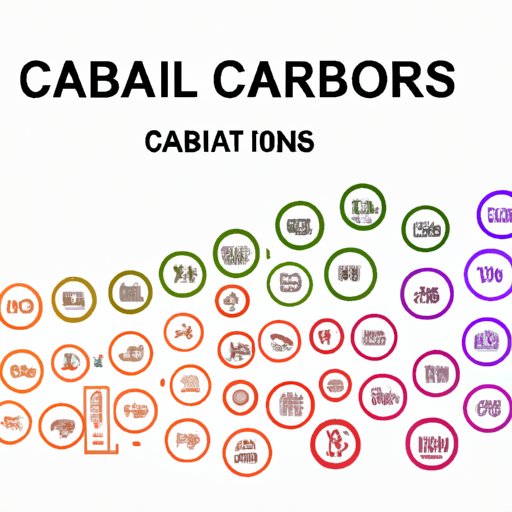A Guide to Calculating Your Daily Calorie Needs
When it comes to maintaining or losing weight, knowing how many calories you need can be an effective tool for achieving your health goals. Understanding the factors that influence your daily calorie needs is the first step to creating a healthy eating plan.
Basal Metabolic Rate (BMR)
Your Basal Metabolic Rate (BMR) is the amount of energy your body needs to maintain its basic functions, such as breathing and digesting food. It accounts for about 60 to 75 percent of the calories you burn each day. Factors that influence your BMR include your age, sex, height, weight, and body composition.
Activity Level
Your activity level is the amount of physical activity you do on a daily basis. This includes both planned exercise sessions and daily activities like walking up stairs and running errands. The more active you are, the more calories you’ll burn throughout the day.
Body Weight
Your body weight also plays a role in determining how many calories you need. Generally speaking, people who weigh more need more calories to maintain their weight. On the other hand, people who weigh less need fewer calories to maintain their weight.
How Much Should You Eat in a Day?
Once you understand the factors that influence your daily calorie needs, you can begin to calculate how much you should eat in a day. According to the National Institute of Health, the average adult should consume between 2,000 and 2,400 calories per day. However, this number can vary depending on your age and activity level.
Recommended daily calorie intake
The American Heart Association recommends that adults get at least 150 minutes of moderate-intensity aerobic activity each week. For those with a higher activity level, they suggest consuming around 2,600 to 3,000 calories per day.
Different age groups
The recommended daily calorie intake can differ depending on age. For example, children ages 4 to 8 need 1,200 to 2,000 calories per day, while teens ages 14 to 18 need 2,000 to 3,200 calories per day. It’s important to note that these numbers can change depending on an individual’s activity level.

The Benefits of Knowing How Many Calories You Need
Knowing how many calories you need can help you make healthier food choices and improve your overall health. Here are some of the benefits of calculating your daily calorie needs:
Improved health
Eating the right amount of calories can help you maintain a healthy weight and reduce your risk of chronic diseases such as heart disease and diabetes. According to a study published in the Journal of Nutrition, individuals who ate a balanced diet with the right amount of calories had improved overall health and lower rates of obesity.
Maintain or lose weight
Calculating your daily calorie needs can also help you maintain or lose weight. Eating too few calories can lead to unhealthy weight loss, while eating too many calories can lead to weight gain. Knowing your calorie needs can help you stay within a healthy range.

Tips for Eating the Right Amount of Calories
Here are some tips for eating the right amount of calories:
Portion control
Portion control is one of the most important tools for managing your calorie intake. Try to limit your portions to the size of your fist for each meal and snack. This will help you avoid overeating and keep your calorie intake in check.
Include healthy snacks
Snacking can be part of a healthy diet if you choose the right snacks. Instead of reaching for chips or candy, opt for nutrient-rich snacks like nuts, fruits, and vegetables. This will help you stay fuller longer and keep your calorie intake in check.
Eat nutrient rich foods
Eating nutrient-rich foods is important for staying healthy and keeping your calorie intake in check. Choose foods that are high in fiber, protein, and healthy fats, such as lean meats, whole grains, fruits, and vegetables. These foods will provide your body with the nutrients it needs and help you feel full longer.

Developing Healthy Eating Habits to Reach Your Calorie Goals
Developing healthy eating habits is key to reaching your calorie goals. Here are some tips for making healthy eating a habit:
Plan meals and snacks
Meal planning is a great way to make sure you’re getting the right amount of calories each day. Planning ahead will help you make healthy choices and stick to your calorie goals.
Track your food intake
Tracking your food intake can help you stay on track and reach your calorie goals. Keep a food journal or use an app to track the foods you’re eating each day. This will help you stay accountable and make sure you’re eating the right amount of calories.
Avoid processed foods
Processed foods are often high in calories and low in nutrients. Try to limit your intake of processed foods and focus on eating whole, nutrient-rich foods instead. This will help you reach your calorie goals and stay healthy.
Knowing how many calories you need can be a helpful tool for maintaining or losing weight. By understanding the factors that influence your daily calorie needs and developing healthy eating habits, you can reach your calorie goals and stay healthy.
(Note: Is this article not meeting your expectations? Do you have knowledge or insights to share? Unlock new opportunities and expand your reach by joining our authors team. Click Registration to join us and share your expertise with our readers.)
